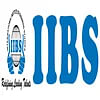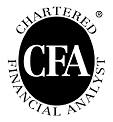CA Final Syllabus 2025 is released on the official website by the conducting authority, the Institute of Chartered Accountants of India (ICAI). Candidates who registered themselves for the exam are advised to go through the CA final syllabus 2025.
CA final exam is the last stage to becoming a Chartered Accountant. CA final 2025 is to be conducted in two groups. The CA final syllabus for both groups has been listed in the sections below. The candidates are requested to be thorough with the CA final syllabus 2025 to navigate their preparation accordingly.
Candidates can download the new CA Final syllabus from the official website of ICAI at icai.org. However, candidates can download the CA Final New Syllabus PDF from the table below.
CA Final Syllabus 2025
| Syllabus Name |
PDF Link |
| CA Final New Syllabus 2025 |
Download PDF |
The following table is the CA Final syllabus 2025 paper wise information.
CA Final syllabus 2025 paper wise
|
Groups
|
Papers
|
Subjects
|
|
Group 1
|
Paper 1
|
Financial Reporting
|
|
Paper 2
|
Strategic Financial Management
|
|
Paper 3
|
Advanced Auditing and Professional Ethics
|
|
Paper 4
|
Corporate and Economic Laws
|
|
Group 2
|
Paper 5
|
Strategic Cost Management and Performance Evaluation
|
|
Paper 6
|
Risk Management
FIanncial Services and Capital Markets
International Taxation
Economic Laws
Global Financial Reporting Standards
Multidisciplinary Case Study
|
|
Paper 7
|
Direct Tax Laws and International Taxation
|
|
Paper 8
|
Indirect Tax Laws
|
The following are the paper-wise syllabus details for both the groups. The candidates can make a note of the syllabus and prepare accordingly to ace the examination.
The following is the syllabus for paper 1 of the CA Final examination.
CA Final syllabus 2025 paper 1
|
Topics
|
Details |
|
Application of Indian accounting standards with reference to general purpose financial statements
|
- Ind AS on Items impacting the Financial Statements
- Ind AS on the First-time adoption of Indian Accounting Standards
- Ind AS on Presentation of Items in the Financial Statements
- Ind AS on Income Statement
- Ind AS on Measurement-based on Accounting Policies
- Ind AS on Assets and Liabilities of the Financial Statements including Industry specific Ind AS
- Ind AS on Disclosures in the Financial Statements
|
|
Indian Accounting Standards on Group Accounting
|
- Business Combinations and Accounting for Corporate Restructuring (as per Ind AS)
- Consolidated and Separate Financial Statements (as per Ind AS)
|
|
Corporate Financial Reporting
|
Consolidation procedures- Minority Interests, Goodwill, Treatment of pre-acquisition and post-acquisition profit
|
|
Consolidated Financial Statements of Group Companies
|
Accounting Reporting, Share-based payments, Valuation
|
|
Concept of Groups, purposes of consolidated financial statements, minority interest, Goodwill
|
Financial Reporting by mutual funds, Non-banking, Finance Companies, Merchant Bankers, Stock and Commodity market intermediaries
|
The CA Final exam phase 2 detailed syllabus has been provided below.
CA Final syllabus 2025 paper 2
|
Topics
|
Details |
|
Risk Management
|
- Identification of types of Risk faced by an organization
- Evaluation of Financial Risks
- Value at Risk (VAR)
- Evaluation of an appropriate method for the identification and management of financial risk.
|
|
Financial Policy and Corporate Strategy
|
- Strategic decision-making framework
- The interface of Financial Policy and strategic management
- Balancing financial goals vis-à-vis sustainable growth.
|
|
Security Valuation
|
- Theory of Valuation
- Return Concepts
- Equity Risk Premium
- Required Return on Equity
- Discount Rate Selection in Relation to Cash Flows
- Approaches to Valuation of Equity Shares
- Valuation of Preference Shares
- Valuation of Debentures/ Bonds
|
|
Security Analysis
|
- Fundamental Analysis
- Technical Analysis
- Meaning
- Assumptions
- Theories and Principles
- Charting Techniques
- Efficient Market Hypothesis (EMH) Analysis
|
|
Securitization
|
- Introduction
- Concept and Definition
- Benefits of Securitization
- Participants in Securitization
- Mechanism of Securitization
- Problems in Securitization
- Securitization Instruments
- Pricing of Securitization Instruments
- Securitization in India
|
|
Portfolio Management
|
- Portfolio Analysis
- Portfolio Selection
- Capital Market Theory
- Portfolio Revision
- Portfolio Evaluation
- Asset Allocation
- Fixed Income Portfolio
- Risk Analysis of Investment in Distressed Securities
- Alternative Investment Strategies in the context of Portfolio Management
|
|
Derivatives Analysis and Valuation
|
- Forward/ Future Contract
- Options
- Swaps
- Commodity Derivatives
|
|
Mutual Fund
|
- Meaning
- Evolution
- Types
- Advantages and Disadvantages of Mutual Funds
|
|
International Financial Management
|
- International Capital Budgeting
- International Working Capital Management
- Multinational Cash Management
- Objectives of Effective Cash Management
- Optimization of Cash Flows/ Needs
- Investment of Surplus Cash
- Multinational Receivable Management
- Multinational Inventory Management
|
|
Foreign Exchange Exposure and Risk Management
|
- Exchange rate determination
- Foreign currency market
- Management of transaction, translation and economic exposures
- Hedging currency risk
- Foreign exchange derivatives – Forward, futures, options and swaps
|
|
Corporate Valuation
|
- Conceptual Framework of Valuation
- Approaches/ Methods of Valuation
- Assets Based Valuation Model
- Earning Based Models
- Cash Flow Based Models
- Measuring Cost of Equity
- Capital Asset Pricing Model (CAPM)
- Arbitrage Pricing Theory
- Estimating Beta of an unlisted company
- Relative Valuation
- Steps involved in Relative Valuation
- Equity Valuation Multiples
- Enterprise Valuation Multiple
- Other Approaches to Value Measurement
- Economic Value Added (EVA)
- Market Value Added (MVA)
- Shareholder Value Analysis (SVA)
- Arriving at Fair Value
|
|
Interest Rate Risk Management
|
- Interest Rate Risk
- Hedging Interest Rate Risk
- Traditional Methods
- Modern Methods including Interest Rate Derivatives
|
|
Mergers, Acquisitions and Corporate Restructuring
|
- Conceptual Framework
- Rationale
- Forms
- Mergers and Acquisitions
- Financial Framework
- Takeover Defensive Tactics
- Reverse Merger
- Divestitures
- Partial Sell off
- Demerger
- Equity Carve-outs
- Ownership Restructuring
- Going Private
- Management/ Leveraged Buyouts
- Cross Border Mergers
|
|
Startup Finance
|
- Introduction including Pitch Presentation
- Sources of Funding
- Startup India Initiative
|
Candidates must check the CA Final paper 3 detailed syllabus provided here.
CA Final syllabus 2025 paper 3
|
Topics
|
Details |
|
Audit Planning, Strategy and Execution
|
- Planning the flow of audit work
- Audit strategy, audit plan, audit programme and importance of supervision
- Principal’s ultimate responsibility
- Extent of delegation
- Control over the quality of audit work
- Analytical Procedures prior to audit as well as towards finalization
- Concept of Principal Auditor and Other Auditor
- Acceptance as Principal Auditor
- Procedures to be performed by Principal Auditor
- Coordination between the Principal Auditor and Other Auditor (SA 600 Using the Work of Another Auditor)
- Concept of Internal Audit Functions and its evaluation
- Using the work of the internal audit function
- Using internal auditors to provide direct assistance (SA 610 Using the Work of Internal Auditors)
- Auditor's Expert – Meaning, Need for an Auditor’s Expert, Understanding the Auditor’s Expert, Agreement with the Auditor’s Expert, Adequacy of the Auditor’s Expert’s Work (SA 620 Using the Work of an Auditor’s Expert)
|
|
Auditing Standards, Statements and Guidance Notes
|
- Engagement & Quality Control
Standards
- Statements and Guidance Notes on Auditing issued by the ICAI; Elements of system of quality control
- leadership responsibilities for quality within the firm
- Acceptance and Continuance of clients relationships and specific engagements
- Engagement Performances, etc. (SQC 1 Quality Control for Firms that Perform Audits and Reviews of Historical Financial Information and Other Assurance and Related Services Engagements)
|
|
Special aspects of Auditing in an Automated Environment
|
- Key features of the automated environment, related risks and controls
- Standards
- Guidelines and procedures
- using relevant frameworks and best practices
- understanding and documenting the automated environment
- Enterprise Risk management overview
- assessing IT-related risks and controls
- evaluating risks and controls at the entity level and process level
- Considerations of an automated environment at each phase of the audit cycle
- Using relevant analytical procedures and tests using data analytics
- key concepts of auditing in real-time automated environments such as E-Commerce, ERP, Core Banking, etc
|
|
Risk Assessment and Internal Control
|
- Evaluation of internal control procedures
- Components of internal controls
- Internal control and risk assessment
- Risk-based audit, audit risk analysis, general steps
- Internal audit; Reporting on internal control weaknesses (SA 265 Communicating Deficiencies in Internal Control to Those Charged With Governance and Management)
- Framework on Reporting of Internal Controls.
|
|
Audit of Limited Companies
|
- Application of Relevant Provisions under the Companies Act, 2013 relating to Audit and Auditors and Rules made thereunder
- Powers/rights, duties of auditors
- Branch Audit
- significance of true and fair view
- Dividends and divisible profits- financial, legal, and policy considerations
- Depreciation
- Special features of audit of Limited Liability Partnerships (LLPs)- Eligibility for audit, the appointment of auditor, remuneration, etc.
- Audit report under the Companies Act, 2013; Reporting under CARO.
|
|
Special aspects of Auditing in an Automated Environment
|
- Key features of the automated environment, related risks and controls
- Standards
- Guidelines and procedures
- using relevant frameworks and best practices
- understanding and documenting the automated environment
- Enterprise Risk management overview
- assessing IT-related risks and controls
- evaluating risks and controls at the entity level and process level
- Considerations of an automated environment at each phase of the audit cycle
- Using relevant analytical procedures and tests using data analytics
- key concepts of auditing in real-time automated environments such as E-Commerce, ERP, Core Banking, etc
|
|
Audit Committee and Corporate Governance
|
- Audit committee
- Role of auditor in the Audit Committee and Certification of Compliance of Corporate Governance
- Compliances with Laws and Regulations (SA 250 Consideration of Laws and Regulations in an Audit of Financial Statements)
- Disclosure requirements including those of SEBI
- Regulatory requirements of Corporate Governance, Report on Corporate Governance
|
|
Audit Reports
|
- Basic elements of auditor’s report
- Types of opinion
- Notes on accounts
- Distinction between notes and qualifications
- Distinction between audit reports and certificates
- Communication to Management and those charged with Governance
- Self Review threats
- Drafting of different types of Audit Reports.
|
|
Special features of audit of Banks, Insurance & Non-Banking Financial Companies
|
|
Audit of Consolidated Financial Statements
|
- Provisions under the Companies Act, 2013 in respect of Accounts of Companies and Rules made thereunder
- Audit of Consolidated Financial Statements- the responsibility of parent company
- Auditor of the consolidated financial statements
- Audit considerations- permanent consolidation
- Current period consolidation
- Reporting
|
|
Audit of Public Sector Undertakings
|
- Special features
- Directions of Comptroller and Auditor General of India
- Concept of propriety audit
- Performance audit
- Comprehensive audit
|
|
Audit under Fiscal Laws
|
- Audit under Fiscal Laws, viz, Direct and Indirect Tax Laws including documentation for Form 3CD etc.
|
|
Internal Audit, Management and Operational Audit
|
- Provisions of internal audit as per Companies Act, 2013
- Scope of internal auditing
- Relationship between the internal and external auditor
- Basics of Internal Audit Standards issued by the ICAI
- Drafting of Internal Audit Report
- Management audit and Operational audit.
|
|
Liabilities of Auditors
|
- Professional negligence
- Civil liabilities
- Criminal liabilities
- Liabilities under different statutes - for example, Income Tax Act, Companies Act.
|
|
Professional Ethics
|
- Code of Ethics with special reference to the relevant provisions of the Chartered Accountants Act, 1949
- and the Regulations thereunder.
|
|
Due Diligence, Investigation and Forensic Audit
|
- Due Diligence Review
- Audit versus Investigation
- Steps for investigation
- Types of investigation
- Procedure, powers, etc. of the investigator
- Types of Fraud, indicators of fraud, follow-up thereof
- Forensic audit meaning
- The difference between statutory audit and forensic audit, forensic audit techniques
- Forensic audit report etc.
|
|
Peer Review and Quality Review
|
The CA Final paper 4, Corporate And Economic Laws is divided into two parts. The detailed syllabus of both the parts is shared below.
- Part - I: Corporate Laws (70 Marks)
- Section A: Company Law
CA Final Paper 4 Syllabus
|
Topics
|
Details |
|
Corporate Secretarial Practice
|
- Drafting of Notices
- Resolutions, Minutes and Reports
|
|
The Companies Act, 2013 and Rules framed thereunder in its entirety with specific reference to section 149 onwards
|
- Appointment and Qualifications of Directors
- Appointment and remuneration of Managerial Personnel
- Meetings of Board and its powers
- Inspection, Inquiry and Investigation
- Compromises, Arrangements and Amalgamations
- Prevention of Oppression and Mismanagement
- Winding Up
- Producer Companies
- Companies incorporated outside India
- Miscellaneous Provisions
- Compounding of offenses, Adjudication, Special Courts
- National Company Law Tribunal and Appellate Tribunal
|
|
Section B: Securities Laws
|
|
The Securities Exchange Board of India Act, 1992
|
- SEBI (Issue of Capital and Disclosure Requirements) Regulations, 2009
- and SEBI (Listing Obligations and Disclosure Requirement) Regulations, 2015
|
|
The Securities Contract (Regulation) Act, 1956 and the Securities Contract
(Regulation) Rules, 1957
|
Introduction and important provisions
|
Part II: Economic Laws (30 Marks)
Students must check the CA Final paper 4 part 2 syllabus provided below.
CA Final Paper 4 Syllabus Economics and Law
|
The Securitisation and Reconstruction of Financial Assets and Enforcement of Security Interest Act, 2002
|
- Important Definitions
- Regulation of Securitisation and Reconstruction of Financial Assets of Banks and Financial Institutions
- Enforcement of Security Interest
- Offences and Penalties
- Miscellaneous Matters
|
|
The Foreign Exchange Management Act, 1999
|
- Introduction
- The broad structure of FEMA, Definition, Regulation and Management of Foreign Exchange
- Contraventions and Penalties in brief
- miscellaneous provisions
|
|
Foreign Contribution Regulation Act, 2010
|
- Definitions, Regulation of Foreign contribution and miscellaneous provisions
|
|
The Prevention of Money Laundering Act, 2002
|
- Definitions
- Punishment for the Offence of Money laundering
- The obligation of Banking Companies
- Financial Institutions and Intermediaries or a person carrying on a designated business or profession
- Appellate Tribunal, Special Court, Procedure for Attachment
- and Confiscation of Property and Recovery of fines and penalties
|
|
The Insolvency and Bankruptcy Code, 2016
|
- Preliminary
- Corporate insolvency resolution process
- Liquidation process and other provisions
|
|
The Arbitration and Conciliation Act, 1996
|
- General Provisions
- Arbitration agreement,
- Tribunal, Conciliation
|
Strategic Cost Management and Performance Evaluation
- Part A- Strategic Cost Management and Decision Making
- Sub Part - I Strategic Cost Management
CA Final Paper 5 Syllabus
|
Topics
|
Details |
|
Introduction to Strategic Cost Management
|
- Concept of Strategic Cost Management
- Limitations of Traditional Cost Management
- Traditional vs. Strategic Cost Management
|
|
Lean System and Innovation
|
- Introduction to Lean System
- Just-in-Time (JIT)
- Kaizen Costing
- 5 Ss
Total Productive Maintenance (TPM)
- Cellular Manufacturing/ One-Piece Flow Production Systems
- Six Sigma (SS)
- Introduction to Process Innovation and Business Process Re-engineering (BPR)
|
|
Modern Business Environment
|
- Introduction/ Characteristics of the Modern Business Environment
- Cost of Quality, Total Quality Management, Business Excellence Model
- Throughput Accounting and Theory of Constraints
- Supply Chain Management (SCM)
- Gain Sharing Arrangements
- Outsourcing
|
|
Cost Management for Specific Sectors
|
- Agricultural Sector
- Information Technology Sector
- Power Sector
|
|
Cost Management Techniques
|
- Cost Control/ Waste Control, Cost Reduction
- Target Costing
- Value Analysis/ Value Engineering
- Pareto Analysis
- Life Cycle Costing
- Environmental Management Accounting
|
Sub Part - II Strategic Decision Making
CA Final Paper 5 Syllabus Strategic Decision Making
|
Pricing Strategies/ Decisions
|
- Theory & Principles of Product Pricing
- Pricing – New Product, Finished Products & Pricing of Services
- Sensitivity Analysis in Pricing Decisions
- Pricing Decision under Special Circumstances
- Pricing Strategies
|
|
Decision Making
|
- Decision Making using CVP Analysis
- Decision Making using Relevant Cost Concepts
- Decision Making using Activity Based Costing
- Ethical and Non-Financial Considerations Relevant to Decision Making
|
Part - B Performance Evaluation And Control
Sub Part - I Performance Evaluation and Reporting
CA Final Paper 5 Syllabus Performance Evaluation And Control
|
Divisional Transfer Pricing
|
- Meaning, Purpose and Principles of Transfer Pricing
- Methods of Transfer Pricing
- The Behavioural Consequences arising from Divisional Structures
- International Transfer Pricing
|
|
Performance Measurement and Evaluation
|
- Responsibility Accounting
- Linking Critical Success Factors (CSFs) to Key Performance Indicators (KPIs) and Corporate Strategy; Performance Measurement Models‒The Balanced Scorecard, The Performance Pyramid, The Performance Prism and The Building Block Model; Divisional Performance Measures; Benchmarking Schemes
- Performance Measurement in the Not-for-Profit Sector
- Preparation of Performance Reports
|
|
Strategic Analysis of Operating Income
|
- Operating Profit Analysis
- Advanced Activity Based Costing, Activity-Based Management (ABM), Activity Based Budgeting (ABB)
|
Sub Part - II Managerial Control
CA Final Paper 5 Syllabus Managerial Control
|
Standard Costing
|
- Analysis of Advanced Variances
- Integration of Standard Costing with Marginal Cost Accounting
- Reconciliation of Profit
- Variance Investigation Techniques, Interpretation of Variances, Possible
- Interdependence Between Variances and Reporting
- Behavioural Aspects of Standard Costing, Limitation of Standard Costing
- (including its use in the contemporary business environment
|
|
Budgetary Control
|
- The Concept of Feedback and Feed Forward Control
- Behavioural Aspects of Budgeting – Imposed Style, Participative Budget
- Behavioural Aspects of Budgetary Control
- Beyond Budgeting
|
The CA Final 2025 paper 6 syllabus is divied into various parts. The detailed syllabus of all the parts has been provided in the section below individually for better understanding and easy access to the students.
Paper 6A - Risk Management (100 Marks)
The detailed syllabus of the paper 6 part A Risk Management has been shared in the tabular below for students use. The topics will help students prepare well for their upcoming session exam.
CA Final Paper 6 Syllabus
|
Topics
|
Details |
|
Introduction to risk
|
- The Concept of Risk
- Risk and Uncertainty: Distinction
- Classification of Risks
- Dynamic Nature of Risks
- Types of Risk, including
- Strategic and Operational Risks
- Business Risk
- Financial Risk
- Information Risk
- Liquidity Risk
|
|
Risk management
|
- Concept of Risk Management
- Objective and Process of Risk Management
- Importance of Risk Management
- Risk Management techniques
|
|
Source and evaluation of risks
|
- Identification and Sources of Risk
- Quantification of Risk and various methodologies
- Impact of Business Risk
- Identify and assess the impact upon the stakeholder involved in Business Risk
- Role of Risk Manager and Risk Committee in identifying Risk
|
|
Risk model
|
- VAR
- Stress Testing
- Scenario Analysis
- Country and Sovereign Risk Models and Management
|
|
Evaluation of Risk Management Strategies
|
- Risk Management Strategy alignment with Business Strategy
- Internal Control environment and linkages with Risk Management
- Risk Culture and attitudes to risk management
- Integrated Risk Reporting and Stakeholder responsibilities
- IT Risk Management – Disaster Recovery
|
|
Risk associated with corporate governance
|
- Evaluation of Risk Associated with Governance
- Description and evaluation of framework for Board level consideration of risk
- OECD Guidelines for Corporate Governance
|
|
Credit risk measurement and management
|
- Understanding the component of credit risk
- Evaluating credit risk
- Mitigating Credit risk
- Qualitative and Quantitative techniques to manage risk
- Credit scoring models
|
|
Enterprise Risk Management
|
Definition, Scope and Techniques
|
|
Operational Risk Management
|
Definition, Scope and Techniques
- Risk Analysis in Capital Budgeting Decision
- Foreign Exchange Risk
- Interest Rate Risk
|
Paper 6 B- Financial Services and Capital Markets (100 Marks)
Applicants must note that the part B of paper 6 of the CA Final exam consist of 100 marks in total and the detailed syllabus of the part B has been provided in the table for reference.
|
Topics
|
Details |
|
Impact of various Policies of Financial Markets
|
- Credit Policy of RBI
- Fed Policy
- Inflation Index, CPI, WPI, etc
|
|
Global Financial Markets
|
- Introduction to Global Financial Market
- Role of Financial Market in Economic Development of a country
- Stakeholders in Financial Market (Domestic and Global)
- Indian Financial Market scenario
|
|
Capital Market - Primary
|
- New Issue Market – Domestic and Global
- Private Placement , QIP, Disinvestment
- Right Issue
|
|
Capital Market - Secondary
|
- Secondary Market
- Stock Market Operations
- Indian Debt Market
|
|
Institutions and Intermediaries
|
- Depository
- Stock and Commodity Exchanges – Indian and Global
- Intermediaries
- Institutional Investors
- FPIs
- Custodians
- Clearing Houses
|
|
Money Market
|
- Basics of Money Market
- Money Market Participants
- Money Market Instruments
- Repo and Reverse Repo
- CRR, SLR
- MIBOR, LIBOR
- Government Securities Market
|
|
Banking as source of Capital including NBFCs
|
- Concept of Project Financing
- Working Capital Management
- Reverse Mortgage
|
|
Commodity Market
|
- What are Commodity Markets
- Role of Commodity Markets
- Commodity Market in India
- Application of Derivative in Commodities
- Global Commodities Exchanges
|
|
Institutions and Intermediaries
|
- Depository
- Stock and Commodity Exchanges – Indian and Global
- Intermediaries
- Institutional Investors
- FPIs
- Custodians
- Clearing Houses
|
|
Private Equity
|
- Meaning and Classification: Venture Capital, Buyouts, Special Cases, Hurdle rate, Paid in Capital, Term Sheet
- Cost of Investing in Private Equity
- Exit Routes
- Valuation of Private Equity Transactions
- Private Equity Funds (Distribution of returns in General Partner and Limited Partners)
|
|
Mutual Funds
|
- Meaning
- Evolution
- Types
- Performance Measures, NAV
- Mutual Fund Organisation
- Advantages and Disadvantages of Mutual Fund
- Exchange Traded Funds (ETFs)
- Real Estate Investment Trusts (ReITs)
- Infrastructure Investment Trusts (Invits)
|
|
Credit Rating
|
- Introduction
- Rating Services
- Objectives and types
- Uses
- Credit Rating Process
- Credit Rating Methodology
- Rating Revisions
- Credit Rating Agencies in India and abroad
- Limitations with case studies
|
|
Investment Banking
|
- Concept
- Functions
- Challenges
- Developments in Investment Banking
- Merchant Banking and issue management
|
|
Risk Management
|
- Preventive Controls
- Early Signals
- Credit Risk
|
|
Treasury Operations
|
- Raising and Deployment of Funds
- Risk Management
|
|
Factoring and SEBI Guidelines
|
- Securitization
- Fixed Income Securities (Valuation of Bonds/ Debentures)
- Derivatives
- Interest Rate Risk
- The Securities and Exchange Board of India Act, 1992
- Legislative framework on listing agreements
- The Securities Contract (Regulation) Act, 1956
- Chapter III-D of the RBI Act, 1934
|
Paper 6 C- International Taxation
The paper 6 part C of the International Taxation has been detailed in the section below for students reference. Both the parts of paper 6 consits of 50 marks.
Part I - Taxation of International Transactions and Non-resident Taxation in India (50 Marks)
The detailed syllabus of the Taxation of International Transactions and Non-resident Taxation of India has been provided in the tabular below.
CA Final Paper 6 Syllabus International Taxation
|
Other Provisions relating to taxation of international transactions and non-resident taxation under the Income-tax Act, 1961
|
- Non-resident Taxation (including Source Rule of Taxation)
- Double Taxation Relief
- Advance Rulings
|
|
Transfer Pricing provisions under the Income-tax Act, 1961 (30 Marks)
|
- Arm’s Length Price
- International Transactions
- Most Appropriate Method
- Functions, Assets and Risk Analysis
- Documentation & Compliances
- Specific Reporting Regime in respect of Country by Country reporting and
- master file
- Advance Pricing Agreements
|
|
Law and Procedures under the Black Money (Undisclosed Foreign Income and Assets) and Imposition of Tax Act, 2015 – An Overview.
|
-
|
Part II - Other aspects of International Taxation (50 Marks)
The detailed syllabus of the Other aspects of International Taxation paper has been mentioned in the table below.
CA Final Paper 6 Syllabus Other International Taxation
|
Tax treaties, Application and Interpretation
|
- Features of Tax treaties
- Overview of Tax Information Exchange Agreements
- Commentaries and their importance
- Role of Vienna Convention in application and interpretation of tax treaties
|
|
Overview of Model Tax Conventions
|
- OECD Model Tax Convention
- UN Model Tax Convention
- US Model Tax Convention
|
|
Taxation of E-Commerce Transactions
|
- Introduction
- Emerging issues
- Equalisation levy
|
|
Anti Avoidance Measures
|
- Controlled Foreign Corporations
- Base Erosion and Profit Shifting
- Other Anti Avoidance Measures
|
Paper 6 D- Economic laws (100 Marks)
The detailed syllabus topics mentioned for the paper 6 part D of CA Final exam will help students in preparing well for the examination. This portion of the exam consist of 100 marks in total.
CA Final Paper 6 Syllabus Economic laws
| Real Estate (Regulation and Development) Act, 2016 [Central Act and Rules/Regulations] |
Competition Act, 2002 and Rules/ Regulations |
| World Trade Organization (WTO) covering its Role, Principles, Functions and Dispute Settlement Mechanism |
Prohibition of Benami Property Transactions Act, 1988 and Rules/ Regulations |
| Prevention of Money Laundering Act, 2002 and Rules/ Regulations |
Foreign Exchange Management Act, 1999 and Rules/ Regulations |
| Insolvency and Bankruptcy Code, 2016 and Rules/ Regulations |
- |
Paper 6 E- Global Financial Reporting Standards (100 Marks)
The part E of the paper 6 of CA Final exam consist of 100 marks in total. The part E syllabus topics has been provided in the table below for applicants use.
CA Final Paper 6 Syllabus Global Financial Reporting Standards
| Significant differences between IFRS and US GAAPs |
Conceptual Framework for Financial Reporting as per IFRS |
| Application of International Financial Reporting Standards |
- |
Paper 6 F - Multidisciplinary Case Study (100 Marks)
The detailed topics of the paper 6 part F has been provided in the section below for students reference. The paper 6 part F of the CA Final exam consist of Multidisciplinary Case Study topics of 100 marks.
CA Final Paper 6 Syllabus Multidisciplinary Case Study
| Audit and Assurance |
Corporate Laws |
| Financial Accounting and Reporting |
Business Strategy and Management |
| Finance and Financial Management |
Management Accounting |
| Taxation |
- |
The paper 7 of the CA Final examination is divided into two parts. Part 1 consist of 70 marks from Direct Tax Laws paper and part 2 consist of 30 marks from Inyernational Taxation paper. Students must read the detailed syllabus of both the portions mentioned below.
Part I: Direct Tax Laws (70 Marks)
The Direct Tax Laws part 1 of CA Final paper 7 exam consist of 70 marks in total. Students must note that this portion consist of high weightage. Thus, the detailed syllabus of the part 1 topics has been mentioned in the table below.
CA Final Paper 7 Syllabus
|
Topics
|
Details |
|
Law and Procedures under the Income-tax Act, 1961
|
- Basis of charge, residential status, income which do not form part of total income, heads of income, income of other persons included in assessee’s total income, aggregation of income, set-off and carry forward of losses, deductions from gross total income, rebates, and reliefs
- Special provisions relating to companies and certain persons other than a company
- Provisions relating to charitable and religious trust and institutions, political parties and electoral trusts
- Tax Planning, Tax Avoidance & Tax Evasion
- Collection & Recovery of Tax, Refunds
- Income-tax Authorities, Procedure for assessment, Appeals and Revision
- Settlement of Tax Cases, Penalties, Offences & Prosecution
- Liability in Special Cases
- Miscellaneous Provisions and Other Provisions
|
Part II: International Taxation (30 Marks)
The part 2 of the CA Final paper 7 is International Taxation which consist of 30 marks in total. Students appearing for the CA Final exam must read the detailed topics mentioned in the table below and accordingly prepare for the examination.
CA Final Paper 7 Syllabus International Taxation
| Topics |
Details
|
|
Taxation of international transactions and Non-resident taxation
|
The provisions under the Income-tax Act, 1961, including
- Specific provisions relating to Non-residents
- Double Taxation Relief
- Transfer Pricing & Other Anti-Avoidance Measures
- Advance Rulings
- Equalisation levy
|
|
Overview of Model Tax Conventions – OECD & UN
|
-
|
|
Application and interpretation of Tax Treaties
|
-
|
|
Fundamentals of Base Erosion and Profit Shifting
|
-
|
The paper 8 of the CA Final examination consist of two parts; part 1 consist of 75 marks and part 2 consist of 25 marks. There are various topics covered under thses two parts. The details for the same has been shared in the section below.
Part-I: Goods and Services Tax (75 Marks)
The part 1 of the paper 8 of CA Final exam consist of total 75 marks. The detailed syllabus topics of this part has been provided in the tabular below for the students. They must refer the table and prepare for the exam effectively.
CA Final Paper 8 Syllabus Goods and Services Tax
|
Topics
|
Details |
|
Goods and Services Tax (GST) Law as contained in the Central Goods and Services Tax (CGST) Act, 2017 and Integrated Goods and Services Tax (IGST) Act, 2017 including
|
- Introduction to GST in India including Constitutional aspects
- Levy and collection of CGST and IGST – Application of CGST/IGST law; Concept of supply including composite and mixed supplies, inter-State supply, intra-State supply, supplies in territorial waters; Charge of tax including reverse charge; Exemption from tax; Composition levy
- Place of supply
- Time and Value of supply
- Input tax credit
- Computation of GST liability
- Procedures under GST including registration, tax invoice, credit and debit notes, electronic way bill, accounts and records, returns, payment of tax including tax deduction at source and tax collection at source, refund, job work
- Liability to pay in certain cases
- Administration of GST; Assessment and Audit
- Inspection, Search, Seizure and Arrest
- Demand and Recovery
- Offences and Penalties
- Advance Ruling
- Appeals and Revision
- Other provisions
|
Part - II : Customs & FTP (25 Marks)
The detailed syllabus of the CA Final paper 8 part 2 has been mentioned in the table below for students reference. This part of paper 8 consist of total 25 marks. Thus, students must prepare well for this portion.
CA Final Paper 8 Syllabus Customs & FTP
|
Topics
|
Details |
|
Foreign Trade Policy to the extent relevant to the indirect tax laws
|
- Introduction to FTP – legislation governing FTP, salient features of an FTP,
- administration of FTP, contents of FTP and other related provisions
- Basic concepts relating to import and export
- Basic concepts relating to export promotion schemes provided under FTP
|
|
Customs Law as contained in the Customs Act, 1962 and the Customs Tariff Act, 1975
|
- Introduction to customs law including Constitutional aspects
- Levy of and exemptions from customs duties – All provisions including application of customs law, taxable event, charge of customs duty, exceptions to levy of customs duty, exemption from custom duty
- Types of customs duties
- Classification and valuation of imported and export goods
- Officers of Customs; Appointment of customs ports, airports etc.
- Import and Export Procedures including special procedures relating to baggage, goods imported or exported by post, stores
- Provisions relating to coastal goods and vessels carrying coastal goods
- Warehousing
- Drawback
- Demand and Recovery, Refund
- Provisions relating to prohibited goods, notified goods, specified goods illegal importation/exportation of goods
- Searches, seizure and arrest; Offences; Penalties; Confiscation and Prosecution
- Appeals and Revision; Advance Rulings; Settlement Commission
- Other provisions
|
At last, applicants must prepare well for the CA Final 2025 examination by referring the syllabus PDF link shared. Moreover, they must check the detailed syllabus structure of all the papers mentioned for reference. It will help the students to prepare well for the exam. Moreover, solving previous year question papers will help students in analysing their preparation level.






![Christ University Entrance Test [CUET]](https://media.getmyuni.com/assets/images/main/exam/cuet.png)
















